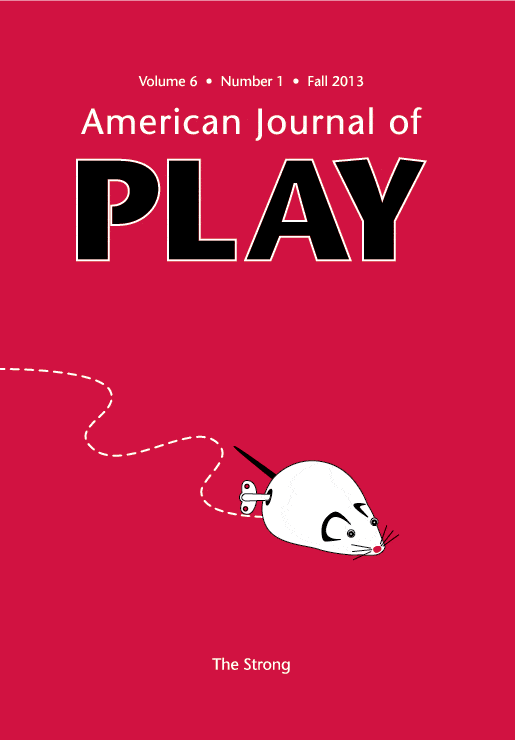Reflections on Pretend Play, Imagination, and Child Development: An Interview with Dorothy G. and Jerome L. Singer
Dorothy G. Singer and Jerome L. Singer have been studying the imaginative play of children for more than forty years, chiefly at Yale University. Currently Dorothy G. Singer is Senior Research Scientist Emeritus and Jerome L. Singer is Professor Emeritus in the Department of Psychology at the university. Both are Fellows of the American Psychological Association. The Singers also served for many years as codirectors of Yale’s Family Television Research and Consultation Center. They have published widely individually, with each other, and with others, contributing hundreds of articles, chapters, and other scholarly works. Dorothy G. Singer’s books include The House of Make Believe: Children’s Play and the Developing Imagination (1990), Playing for Their Lives: Helping Troubled Children through Play Therapy (1993), Make-believe: Games and Activities for Imaginative Play: A Book for Parents, Teachers, and the Young Children in Their Lives (2001), and Play=Learning: How Play Motivates and Enhances Cognitive and Social-Emotional Growth (2006). Jerome L. Singer’s books include The Child’s World of Make Believe: Experimental Studies of Imaginative Play (1973), Imagery and Daydream Methods in Psychotherapy (1974), The Inner World of Daydreaming (1975), The Human Personality (1984), and Imagery in Psychotherapy (2005). Together the Singers wrote Television, Imagination, and Aggression: A Study of Preschoolers (1981) and Imagination and Play in the Electronic Age (2005), and they edited the Handbook of Children and the Media (2012), a collection that the Journal of Contemporary Psychology called the “most comprehensive resource available about all aspects of children’s media.” In this interview, the Singers reflect on their own early play experiences, their careers and long collaboration in studying play and child development, and the connections that bind pretend play, imagination, and child development. Key words: child development and play; children and the media; daydreaming; imaginative play; make-believe play; pretend play





